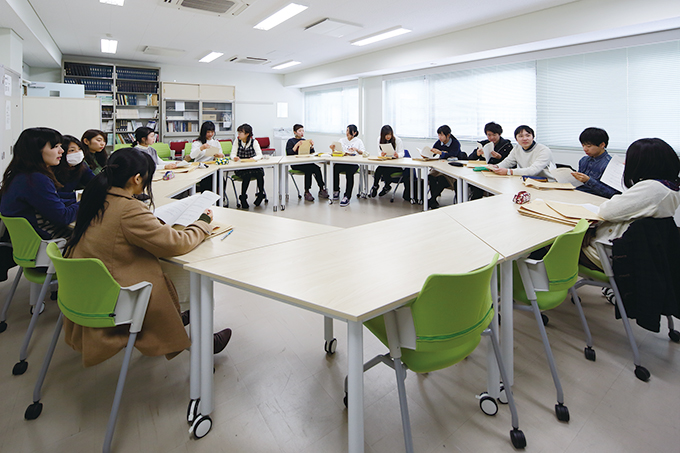Geography, Sociology, Anthropology and Socio-Cultural Studies

Geography
The fundamentals of geography boil down to “seeing, walking, and thinking.” How human behavior relates to regions and places is a central issue in geography. In class, students will go out on fieldwork in neighborhoods and practice “seeing, walking, and thinking.” Among other things, we emphasize research that considers the characteristics of and differences between contemporary regions, such as changes in industrial areas and cities, the current state of farming and fishing villages, and the transformation of local cultural landscapes, as well as research that approaches solutions to regional problems.
Sociology
In a nutshell, sociology is the study of the relationships among people in society and the way society is formed and structured. Its entry points are diverse, including international marriage, child rearing, community development activities, issues concerning education and deviance, same-sex couples, anime and fashion, and so on. Even personal concerns and issues are in fact connected to society. Sociology is the study of these issues through interviews, fieldwork, and questionnaire surveys to understand the society in which we live.
Cultural Anthropology
Cultural anthropology compares and studies the cultures and societies of various peoples of the earth. The “other cultures” we come into contact with through television, travel, etc. sometimes seem strange and inexplicable. There seem to be many differences, from greetings to work practices, from marriage rules to how children are raised. But the reason they are “strange” may be because we are stuck in our own “norm.” When we reexamine the “norm” from the perspective of others, we can see the diversity of human beings.
Socio-Cultural Studies
Socio-Cultural Studies analyzes the construction of images of other peoples, one’s own race, and gender in familiar materials such as commercials, cartoons, movies, and social networking sites. It deals with various issues of international relations and history brought about by war and colonization, especially the intergenerational transmission of war experiences, memories, and trauma, and examines the possibility of mutual understanding between enemies of the past. We study the methodology of “oral history” and how people’s emotions and experiences, which are difficult to document, are represented in the media.
